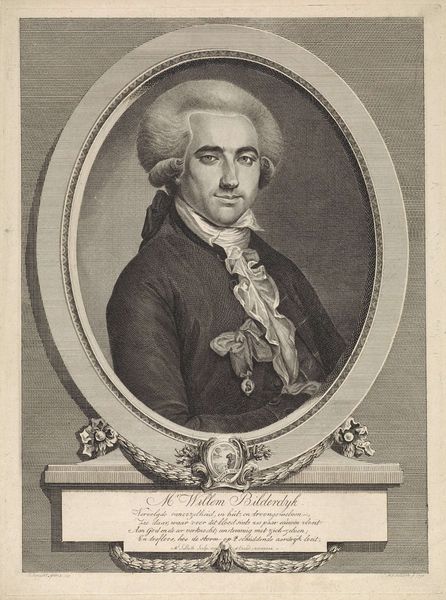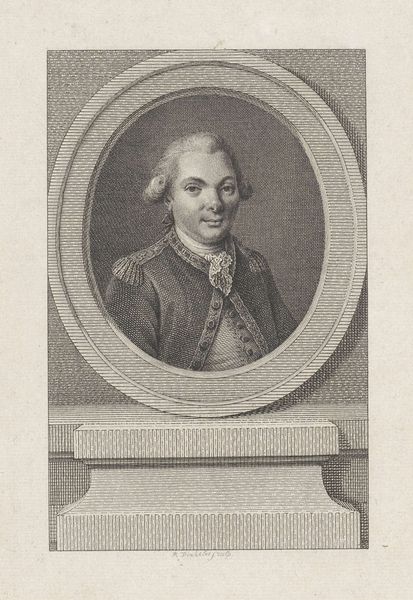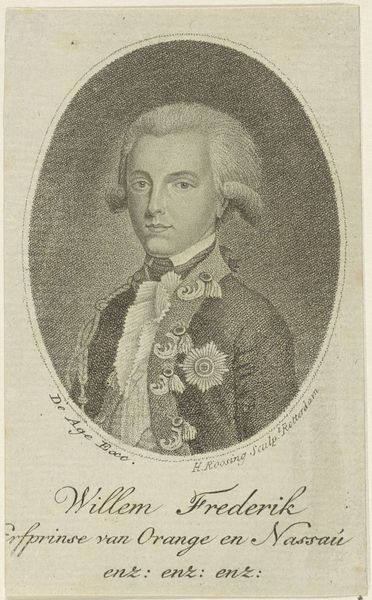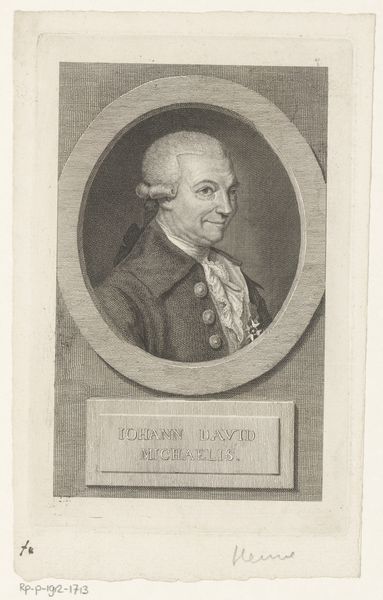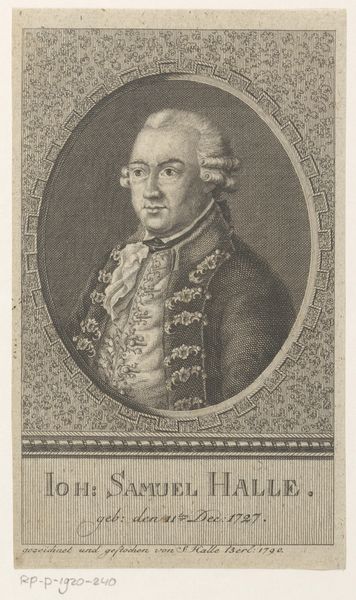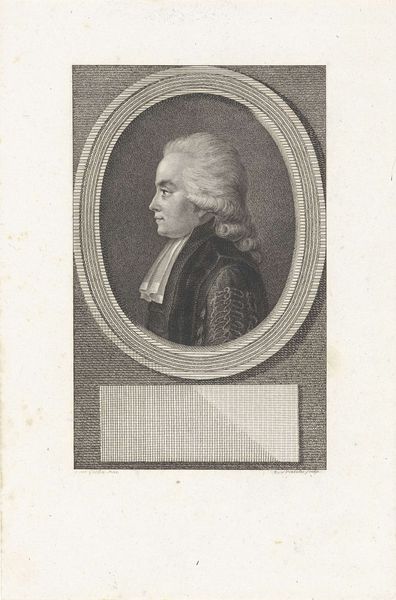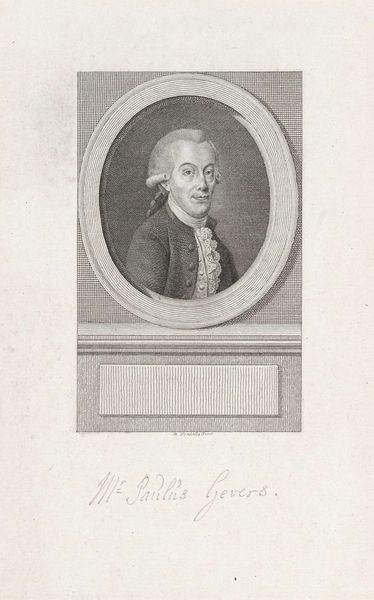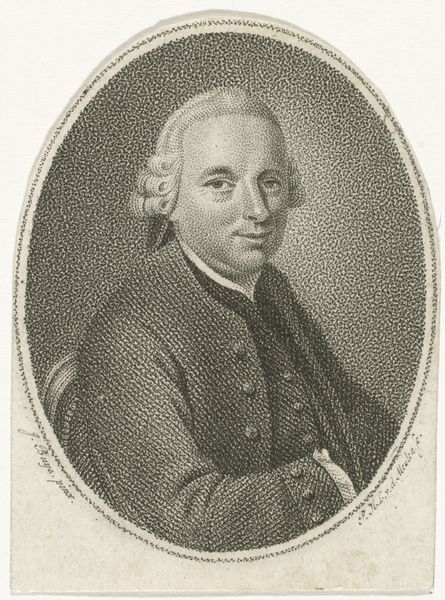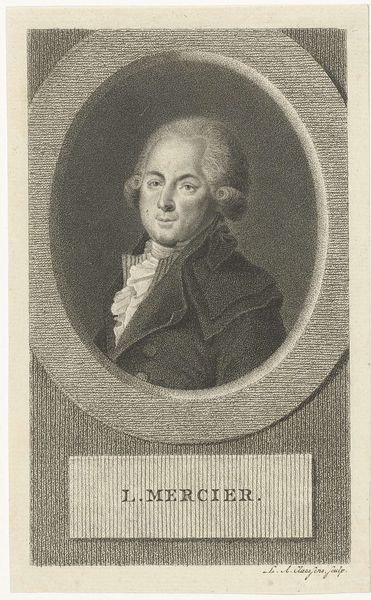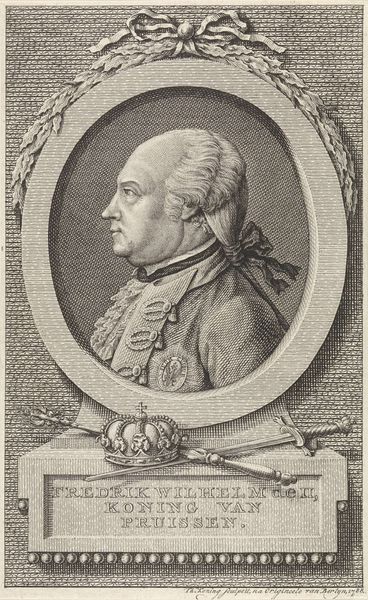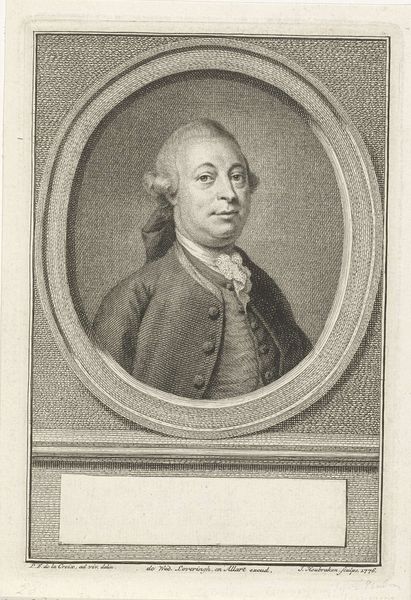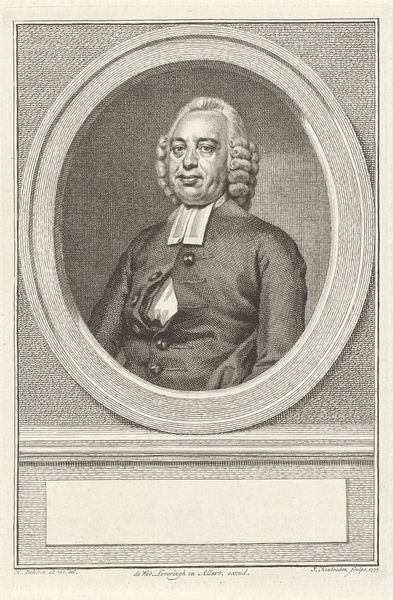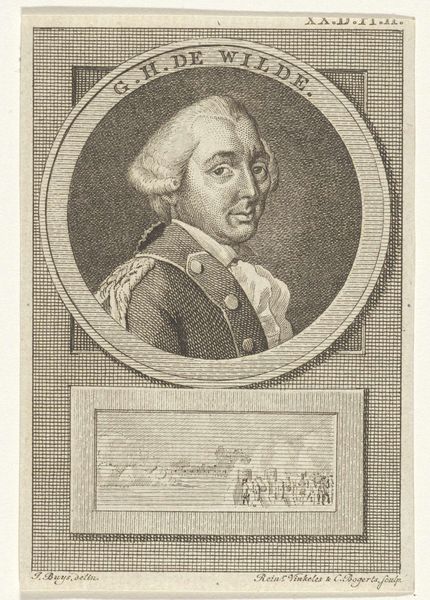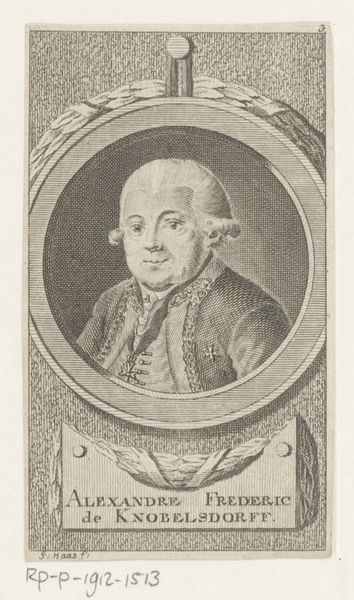
engraving
#
portrait
#
neoclacissism
#
old engraving style
#
caricature
#
history-painting
#
academic-art
#
engraving
Dimensions: height 403 mm, width 295 mm
Copyright: Rijks Museum: Open Domain
Mathias de Sallieth made this print of Johan Philip de Monté in the Netherlands, but its exact date remains unknown. The portrait provides insight into the cultural and social values of the late 18th century. Consider the visual codes: Monté's powdered wig, lace jabot, and embroidered jacket speak to his status and adherence to aristocratic fashion. The oval frame, adorned with foliage and a heraldic crest, further reinforces his noble identity. This imagery reflects a society deeply structured by class and lineage. The print also comments on the institutional history of art itself. Portraiture served as a key tool for the Dutch elite to project power and maintain social hierarchies. Prints like these circulated widely, reinforcing these hierarchies but also potentially opening them up to wider scrutiny. To understand this work fully, we might consult period fashion plates, genealogical records, and studies of the Dutch print market. Art, in this context, is not just an aesthetic object but a historical document, shaped by and reflecting the society that produced it.
Comments
No comments
Be the first to comment and join the conversation on the ultimate creative platform.
